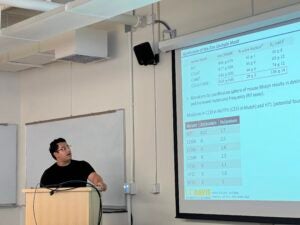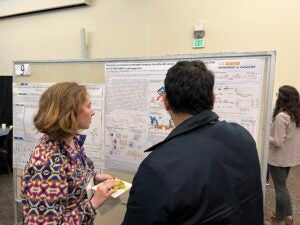Graduate Student Spotlight: Mo Hashemian
This summer’s graduate student spotlight is on Mo Hashemian! Over the past year, Mo has accomplished numerous achievements. He was recently awarded the ARCS Fellowship (Achievement Rewards for College Scientists) for outstanding academics. At the Miller Symposium Poster Session, Mo received the poster award given out by ACS Pharmacology and Translational Sciences. We were also fortunate to hear about his research updates at both the third year seminar and joint group meeting, where Mo discussed the role of metal cofactors in MUTYH function and how he’s been adjusting the protein purification process to retain these cofactors within the structure. We’re excited to see the developments Mo makes on his project moving forward!


